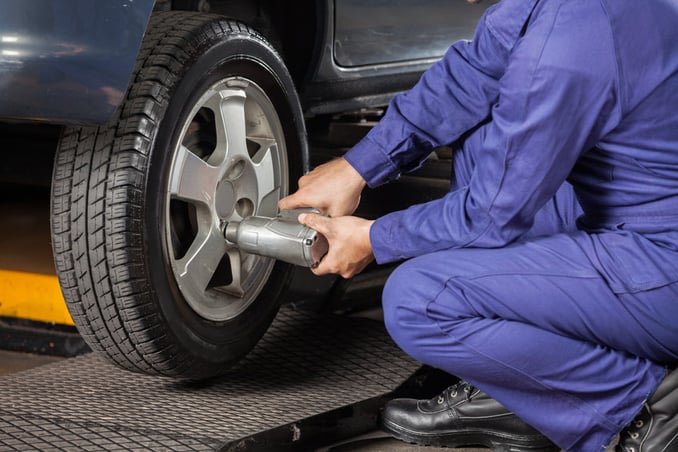Tire Solution: The Influence of Weather
When it concerns guaranteeing optimum performance and security on the road, recognizing the impact of weather on tire solution is essential. From scorching warm to icy roads, each climate component can dramatically influence tire capability and total driving experience. By delving into the impacts of differing weather on tires, drivers can gain useful understandings that may improve their lorry's performance and long life. In this discussion, we will check out the elaborate relationship between weather and tire solution, clarifying the significance of weather-specific tire upkeep practices and factors to consider.
Warmth and Tire Performance
When subjected to heats, tires experience modifications in efficiency that can considerably impact vehicle safety and handling. The warm produced from long term driving or heat problems creates the tire rubber to soften, causing lowered walk life and enhanced wear. As the rubber becomes softer, the tire's grasp when driving decreases, influencing braking distances and overall traction. In severe situations, extreme warmth can also create tire blowouts, posing a serious safety risk to the lorry and its occupants.

Cold Weather Results
Cold weather condition problems can have a significant effect on tire efficiency and safety. As temperature levels decline, tire rubber can solidify, bring about lowered traction on icy or snow-covered roads. In chilly climate, tires might also lose air stress much more rapidly, which can influence handling and gas effectiveness. Additionally, cold temperatures can trigger tire sidewalls to tense, boosting the threat of damage from gaps or various other road hazards.
To reduce the effects of winter on tires, it is important to frequently examine tire pressure and inflate them to the maker's advised degrees. Using winter or all-season tires developed for winter problems can likewise enhance grip and grasp on icy or snowy roadways. Appropriate tire upkeep, consisting of routine assessments for wear and damages, becomes much more essential throughout chillier months to ensure optimal efficiency and security.
Rainy Conditions Influence
Tires with damaged footsteps are more vulnerable to hydroplaning, where a layer of water constructs up in between the tire and the road surface area, leading to loss of grip. To combat this, motorists need to frequently check their tires for adequate walk depth and take into consideration spending in tires particularly designed for wet conditions.
Additionally, stormy weather can additionally lower visibility, making it testing for chauffeurs to see the road in advance plainly (GMC Tire Service). In such conditions, it is crucial to readjust driving rates accordingly and maintain a risk-free complying with distance to permit unexpected quits. Appropriately filled with air tires can likewise aid in keeping control on damp roads by giving far better handling and hold
Snow and Tire Safety And Security
When driving in snowy problems, having the best tires can make a considerable difference in safety and security and efficiency. click now Winter tires are designed with special rubber compounds and step patterns to give much better grip on snow and ice contrasted to all-season tires.

It is essential to comply with manufacturer instructions when making use of and mounting tire chains to stop damage to the tires and lorry. By choosing the best tires, maintaining appropriate rising cost of living, and thinking about additional grip help like tire chains, motorists can boost their security when navigating snow-covered roadways.
Weather-Related Tire Maintenance
Weather-related tire upkeep encompasses a variety of methods intended at ensuring ideal tire function and durability in different weather circumstances. One crucial facet of weather-related tire maintenance is tire stress regulation. Inspecting tire step consistently and changing tires when step wear gets to a particular depth is essential for keeping traction and stability in negative climate.
Conclusion
In verdict, climate conditions have a considerable influence on tire performance and safety. From heat affecting tire pressure and put on to chilly weather condition lowering grip, it is necessary to take into consideration the weather when preserving and using tires.
In this conversation, we will certainly discover the intricate connection in between weather condition conditions and tire solution, dropping light on the significance of weather-specific tire upkeep practices and considerations.
